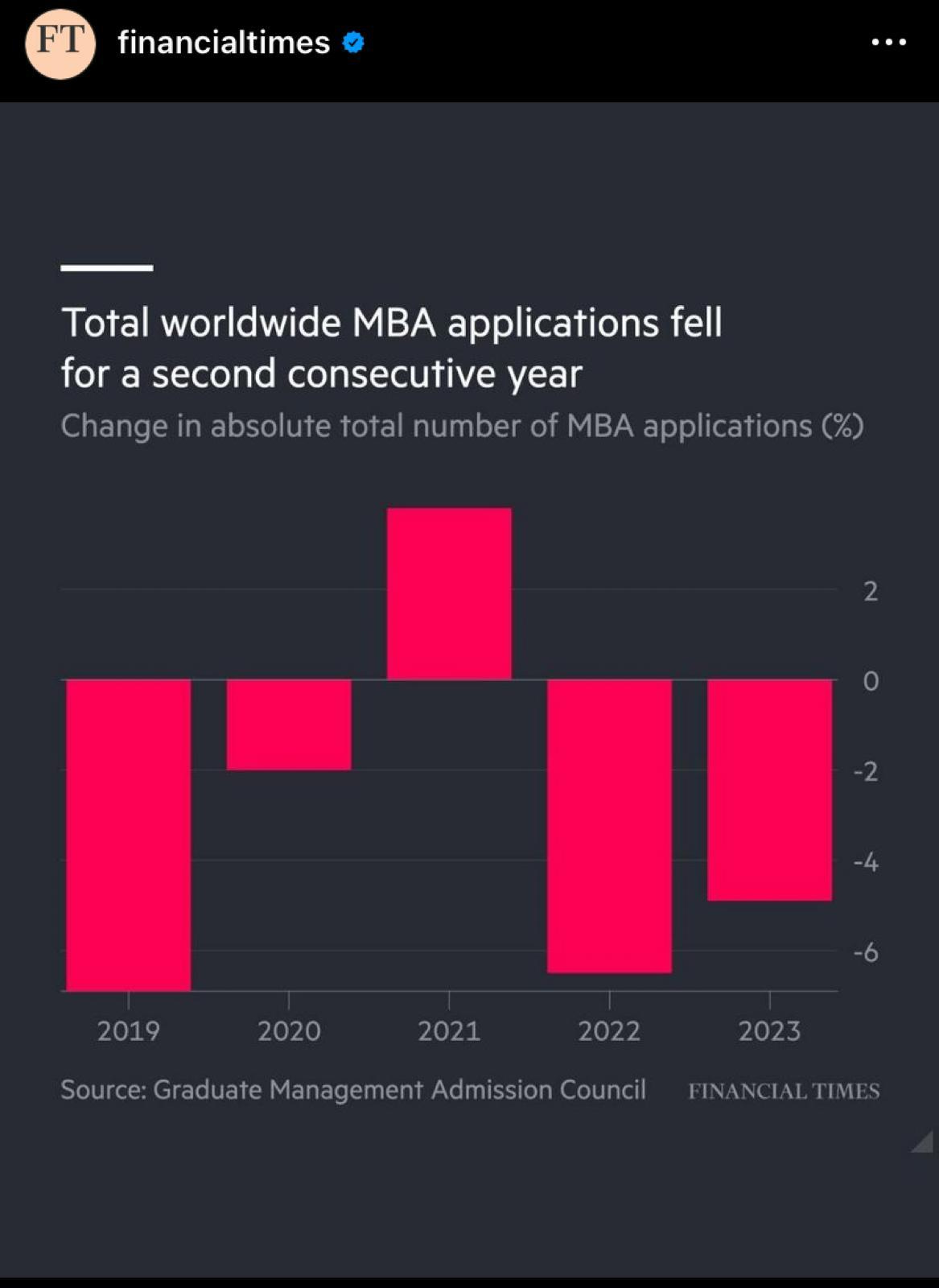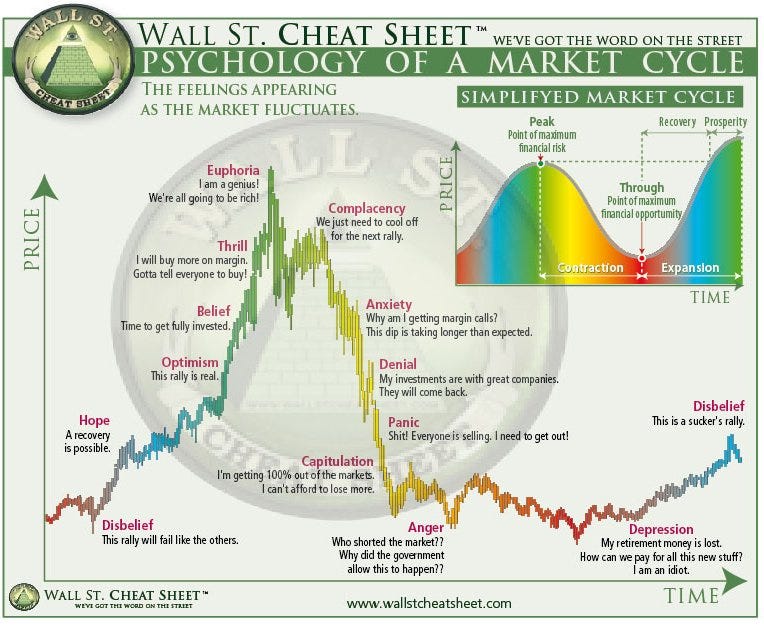The potential Upside of the Education Bubble
Hello there dear reader,
“There is no such thing as writer's block, only holding yourself to too high a standard. You can *always* put words down on a page, if you're willing to accept a sufficiently awful first draft.” - Eliezer Yudkowski
I know, I had already used that one. Anyway, moving on…
Duolingo’s Earnings Report coming out last week led me to dust off the ol’ keyboard and write this blog. E-learning has been increasing in popularity and DUOL’s numbers basically confirmed this once more, with sales, revenue, daily & monthly active users, paid subscribers, margins, earnings per share are all trending up. The stock didn’t react positively to the report at all though, which I guess means that it was all ‘priced in’ already, but that’s not the point of this blog. Besides, DUOL is retesting its IPO highs, which perhaps makes it an interesting name to own for the long term investor at some point, if that’s what you’re in to.
In the same sector, Stride Inc, a company that provides online and blended education programs, is in active price discovery and apparently gets a strong vote of confidence from the market, seemingly being the strongest name in online education stocks.
The quite well-known Udemy is still very much struggling after its IPO and basing out around 10$.
The Coursera chart looks even worse so I won’t even put it in;) Now, of course, that doesn’t mean the societal trend isn’t valid, just that the companies in question may simply not be profitable yet. Just look at Match Group (Tinder) and Bumble’s charts. Nobody would dispute that online dating has grown tremendously over the past 10-15 years, but these companies aren’t profitable yet, and that definitely shows in their stock price. Which, coincidentally, is also a very strong argument for exercising caution when betting on a societal trend through investments. Price is the only arbiter of truth - in this case, profitability.
However, why I personally think e-learning is interesting specifically, is what’s on the other side of the trade - namely, the slow decay of academic prestige in certain domains.
In the traditional sense, speculative bubbles in financial markets occur when the prices of assets become detached from their fundamental values due to excessive investor optimism. But not all bubbles are solely financial, they can also occur in natural, societal or fashion trends, for example.
Now before I continue, I naturally feel obliged to share my personal bias with you in full transparency: I never graduated from university. I gave it a few tries, but I never really got anything going. I could just never get my heart into it, both from an intellectual and a social point of view, and I ultimately pivoted fulltime to 6 years of adventures as a poker player. In hindsight, I think these two paths were not mutually exclusive at all and easily combinable, and I feel mild regret for not obtaining a degree, even whilst knowing I never needed it. My regret comes more from a social FOMO angle, rooted in not having lived that experience, rather than from actually thinking I would have learned something that I couldn’t now, should I really want or need to. That said, let’s dissect the education bubble;)
Being an aspiring trend watcher, it stands out to me that the academic system is basically in a full-fledged bubble and has been for at least a decade or so.
First of all, the value of (many, not all) degrees is increasingly intangible, sort of vague, meaning that there is no real accountability to the promise that it will be useful in the future that once was. This has been the case for a few years now: a less clear link between academic success and professional success. The correlation was never 100%, but I think it’s not controversial to say it was much stronger 50 years ago than now.
Naturally, it must of course be said that there is obviously a huge difference between whether we’re talking about Mathematics or Physics, or Medicine, or Law, or even IT, or something like Political or Social ‘Sciences’ or ‘Arts Majors’. Hint: making sporadic or even frequent use of the scientific method, does not make you a science.
Back to the bubble: price goes up, yet educational and professional value stayed the same, and in some instances actually declined. Bubble-like behavior.
It is my belief that the top of the contemporary academic system was probably put in with mainstream internet adoption, where curriculums were suddenly wide spread and it was much easier to become ‘self-made’. You could say that (most, not all) universities became more about exclusivity and status, increasingly less about knowledge or actual skills. Huge Big Tech companies finding root and evermore frequently being led by college dropouts wearing the proverbial hoodie also put a significant dent in the status aspect. Networking or ‘access’ is probably the element that remains the most valuable today. An exclusive nightclub, as Peter Thiel would say.
Ever increasing debt. Granted, when I share these costs & debt graphs, that is mostly an American, not a European, problem, but in my opinion it’s all little pieces in the same societal bubble-puzzle and it still doesn’t mean that value of universities outside of the USA actually went up.
Of course, some of this data is cherrypicked, but let’s agree the value of most university degrees hasn’t considerably gone up in the last decades - that seems fair. Then what’s next? A decline in demand would logically be next.
Now this could be because of:
quality of universities deteriorating
(business, IT, psychology, ….) degrees having less value in the job market
inflation, people having less money to spend
demographics
all or none of the above
a million other options I’m not listing because I want this to be a 6 minute blog that people actually read
I think this overall picture helps validate the thesis that this secular trend will further strengthen and that a considerable part of academic degrees are losing some of their value in the job market as well as their social relevance. Hundreds of thousands of students getting a Psychology or Political Sciences Bachelor does not mean the degree is valuable, value is usually scarce. A sign of froth, maybe?
When I look at some of the numbers, and also what is going around me in the labor market (in my case, IT, where asking about degrees is considered archaic if someone has the right work experience or certificates), we can debate the speed, the velocity, the outliers and the reasons for these trends, but the direction is clear. Very important to note is that there are little to no stats that argue for the other direction. Usually, when a system is in decline, it needs to reinvent itself before the trend can sustainably reverse, and that’s assuming it ever does (cough cough, media and banking, cough cough).
Mind you, nobody said academic degrees are worthless, just overvalued. If I’m correct about ‘the top being in’, so to speak, then ‘academic euphoria’ took place right before mainstream use of the internet, coinciding with the assumptions that a degree in social sciences meant a scarce and valuable skillset and job security until retirement. I believe we are now somewhere between academic anxiety & denial on this timeless bubble chart. Going to university is still completely standard, ‘the default option’, even though less valuable. Which means ‘capitulation’ is yet to happen. Will it be fueled by some AI-related catalyst? I’m curious what that’s going to look like in practice moving forward and if it will indeed coincide with e-learning stock performance.
Like Mark Zuckerberg once allegedly said: ‘We shall see.’






![Average Cost of College [2023]: Yearly Tuition + Expenses Average Cost of College [2023]: Yearly Tuition + Expenses](https://substackcdn.com/image/fetch/$s_!aB_n!,w_1456,c_limit,f_auto,q_auto:good,fl_progressive:steep/https%3A%2F%2Fsubstack-post-media.s3.amazonaws.com%2Fpublic%2Fimages%2F61a8504a-ec94-4d2a-9c92-5451b32931ac_800x551.png)

![Student Loan Debt Statistics [2024]: Average + Total Debt Student Loan Debt Statistics [2024]: Average + Total Debt](https://substackcdn.com/image/fetch/$s_!vMAT!,w_1456,c_limit,f_auto,q_auto:good,fl_progressive:steep/https%3A%2F%2Fsubstack-post-media.s3.amazonaws.com%2Fpublic%2Fimages%2Feee88da1-2db0-4c86-aebe-11ab6e719198_800x490.png)




